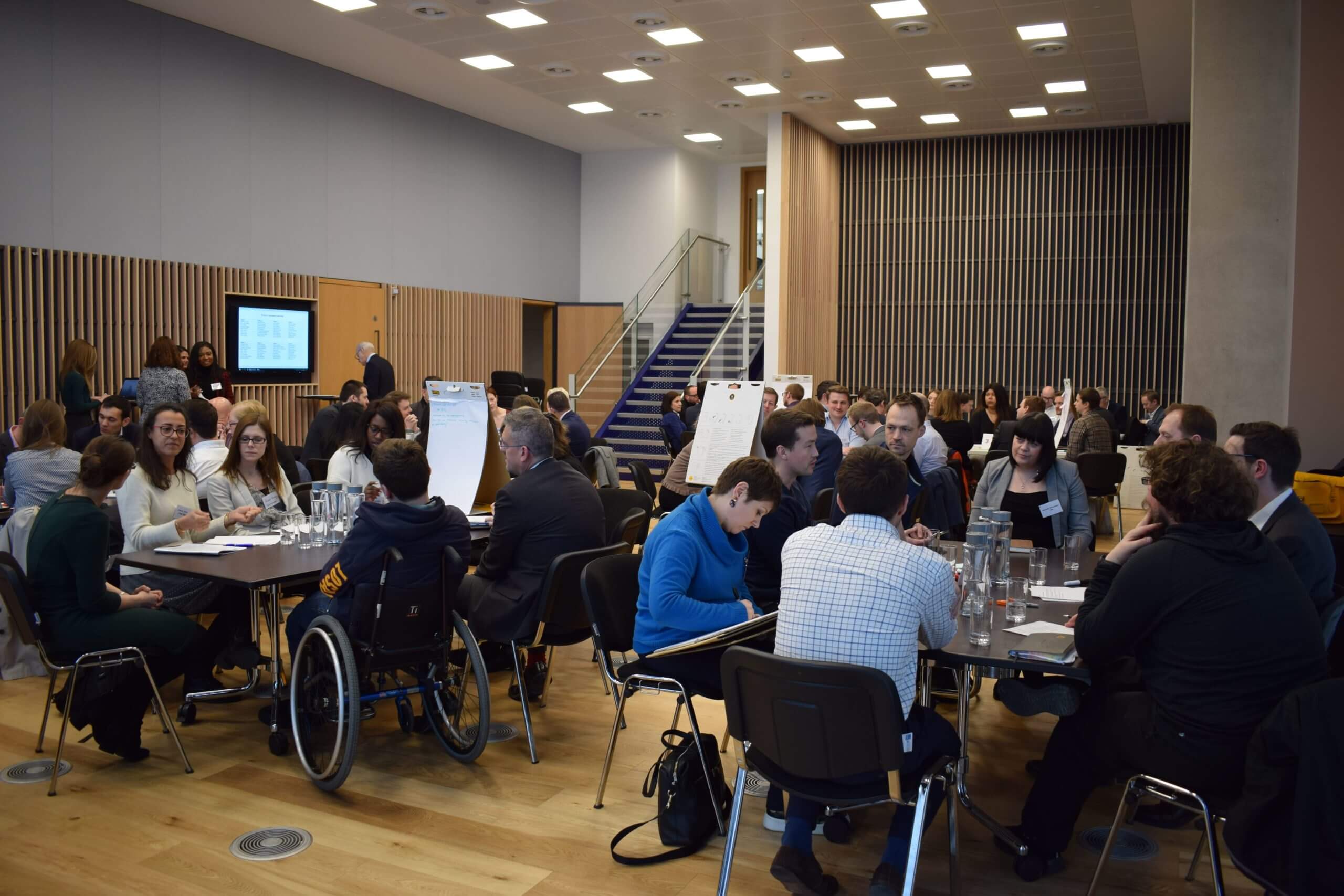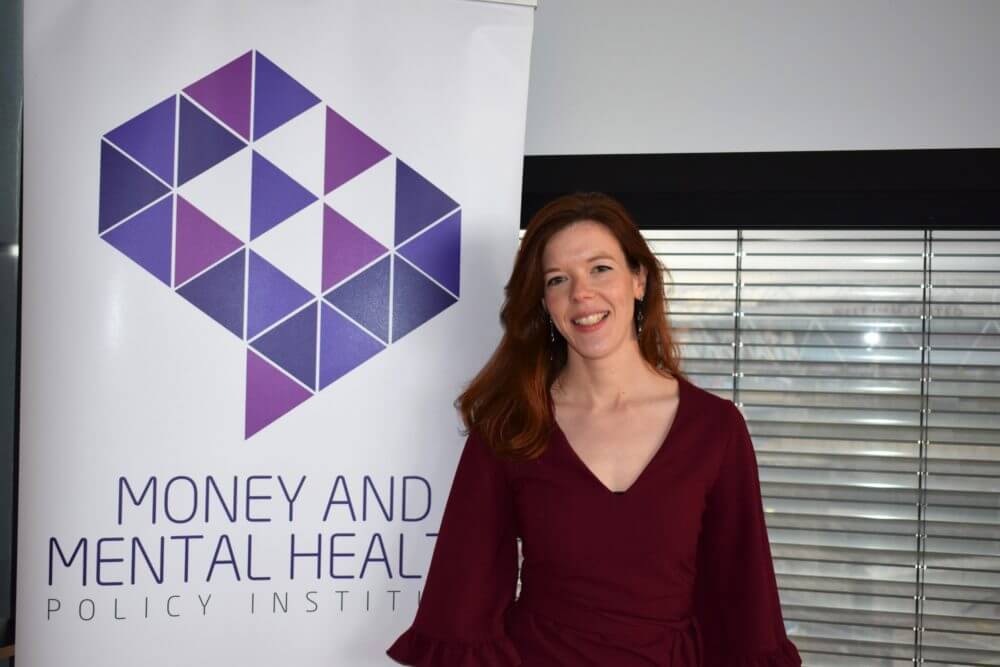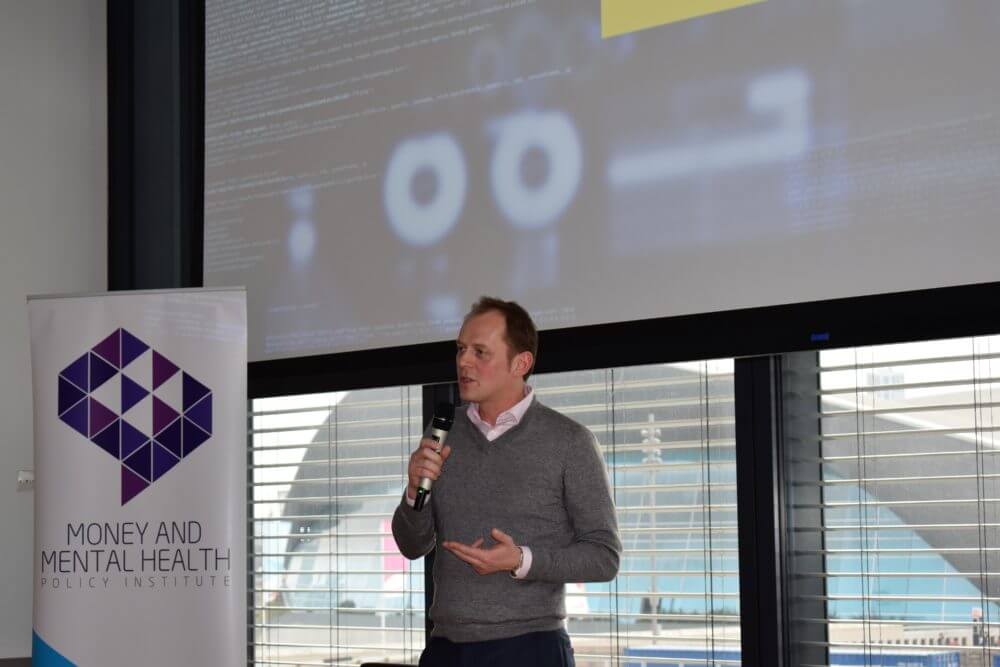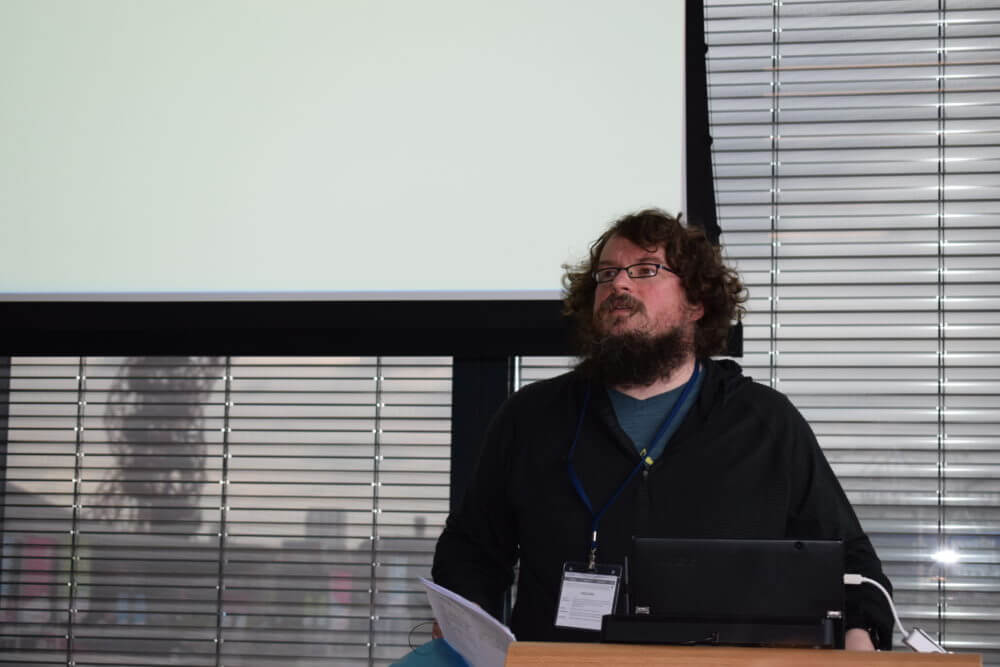

Brian Semple, Head of External Affairs, Money and Mental Health
Event catch-up: launching our new work programme on data, AI and mental health
8 February 2019
Should banks and other financial firms use our personal data to identify when we may be struggling with money and mental health problems? And how can firms do so in a way that is safe, fair and in line with our best interests and wishes?
These questions are at the heart of our new work programme with the Financial Conduct Authority, which kicked off last week with an event bringing together experts from across the financial, tech, mental health and debt advice sectors, and people with lived experience of mental health problems.
Christopher Woolard, Executive Director of Strategy and Competition at the FCA, opened proceedings by talking of the life-changing impacts that new technology can offer. However, he argued that we have not seen enough examples of artificial intelligence (AI) as a force for good – for example, benefiting consumers who may otherwise be excluded from the market. He outlined his hope that the event could help drive cross-industry solutions that make a real difference to people with mental health problems.

Next up was our Chief Executive Helen Undy, who argued that while addressing the ethical challenges around using personal data won’t be easy, there is too much at stake to simply consign these issues to the ‘difficult pile’, as used in the right way, data could save lives. She suggested the key challenge for firms is not identifying people who may be struggling, but knowing what to do next. For example, what are the moral and ethical obligations for a financial firm when they know a customer is struggling? Do they need consent? How can we ensure this information is never used to discriminate against people? And how do customers feel about this?

Matt Whaley, Director of Legal Risk at professional services firm EY, then outlined some of the ethical considerations firms face when using data. He called for firms to adopt a clear set of principles when using data, focused on protecting individual choice, maintaining transparency and accountability, and ensuring that consumers are informed about the incomes of how their data is used.

Matt was followed by Pete Trainor, founder of the firm Us Ai, who spoke about how AI can be a force for good. While acknowledging that tech cannot provide a solution for all problems, he outlined examples of how firms and public services are using AI to identify people who may be in distress, and to personalise the support that those people receive in order to make it as effective as possible.

Our fifth speaker was Dan Holloway, a mental health activist and writer, who highlighted how his mental health had affected his financial situation – from overspending during moments of being ‘up’, to comfort spending during depressive periods. He outlined the complex potential implications of a firm using data to intervene if a customer seems to be struggling with spending or mental health problems. For example, putting spending blocks could be good for someone’s long term financial position, but in the immediate moment the removal of that person’s autonomy could be catastrophic. He urged financial firms to involve people with lived experience of mental health problems in designing AI related products – for example, by using coders and designers who have personal experience.
These presentations were followed by panel discussions and break-out sessions. What was striking from these sessions was the cross-sector excitement about the possibilities that AI and data open up to better support people who may be struggling with their finances due to their mental health. However, there is also a clear desire to do this in an appropriate and ethical way that is in the interests of those customers, and with their permission and involvement.
The event finished with closing remarks from FCA chair Charles Randall, who outlined his organisation’s commitment to working with Money and Mental Health and industry to find solutions to these issues. Over the coming eight months, we will be trying to do just that, by exploring these questions in more detail, hearing more from AI, data and Fintech experts, and consulting our Research Community – watch this space for more details.
To receive further updates on this project, you can sign up to our mailing list or join our Professional Network.
If you have experience of mental health problems, find out how you can join our Research Community here.